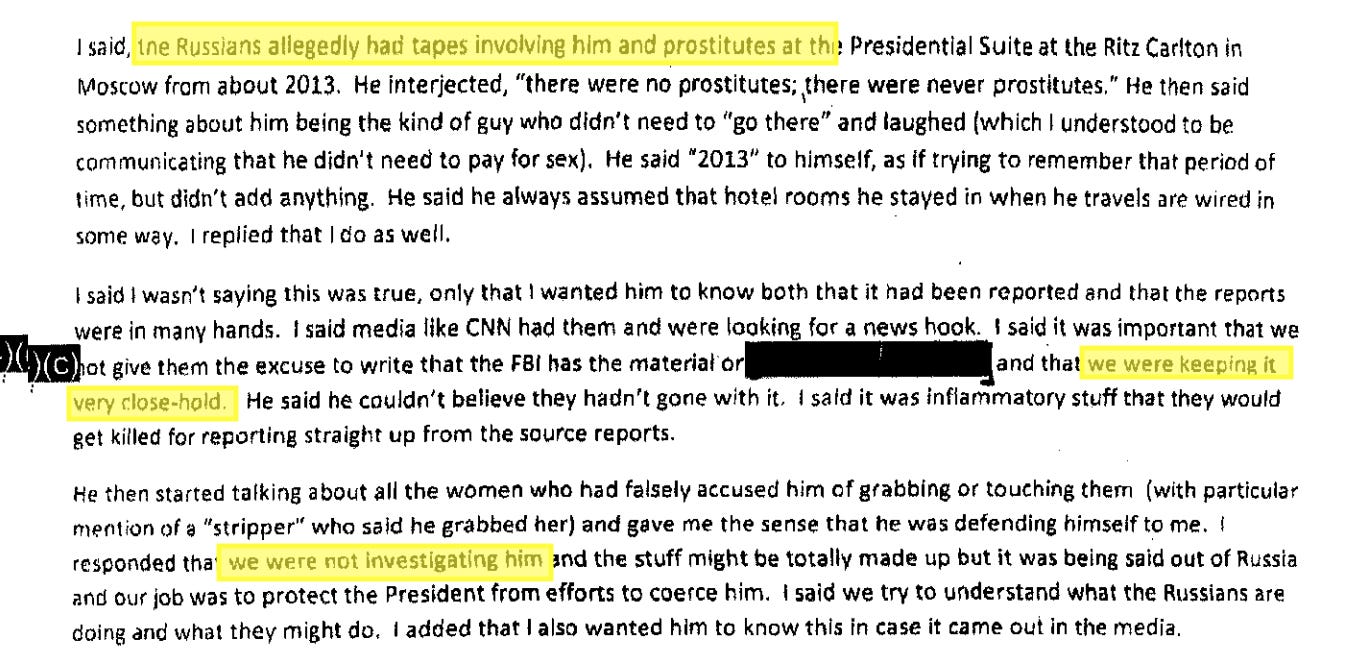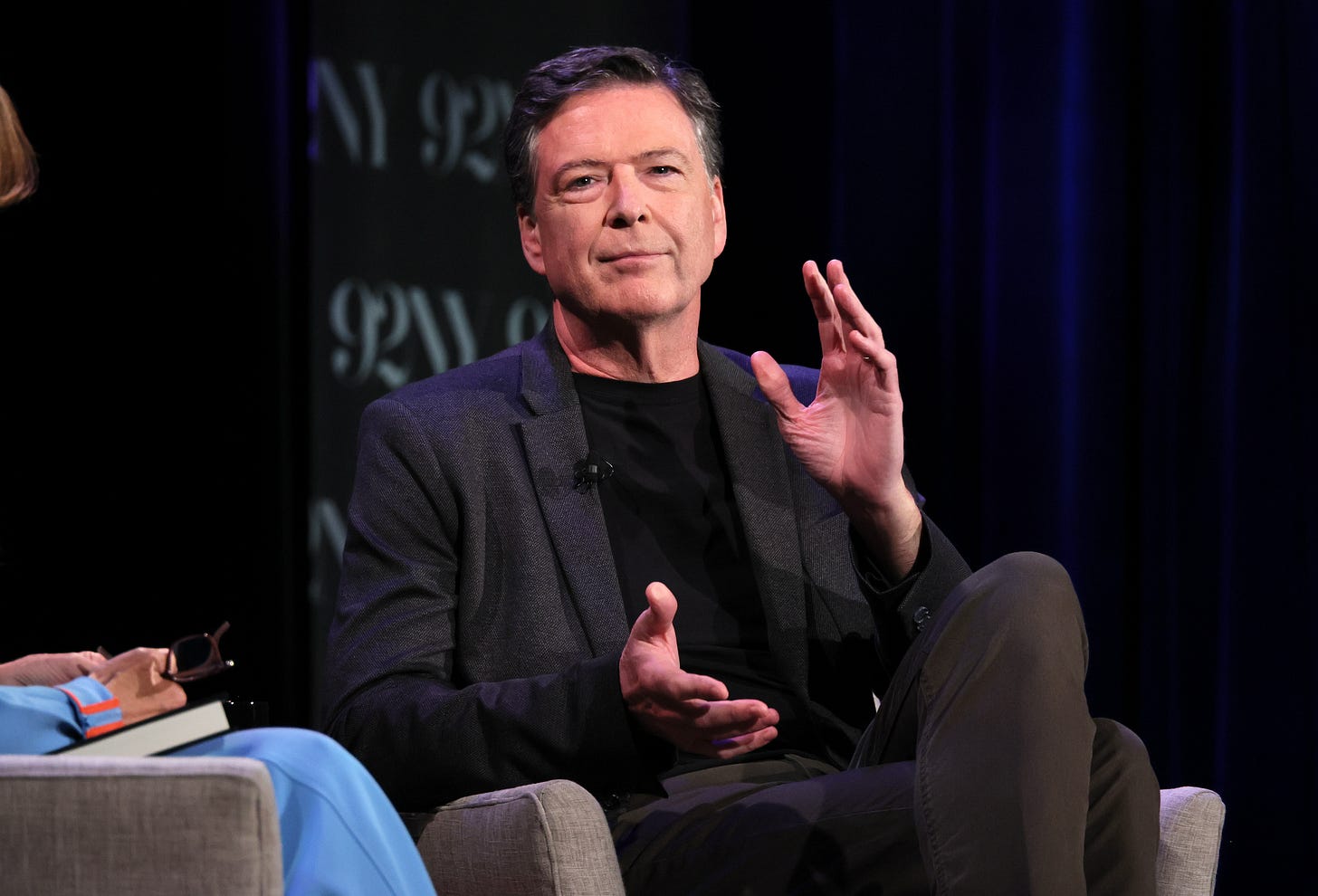Jim Comey: A Man of Many Faces, None Of Which Are Speech Martyrs
Description
The prosecution of James Comey is the latest End of Democracy panic, so press mania is expected. A group letter signed by 42 retired judges, however, takes a grotesque step, turning Comey into a speech martyr:
For the first time in American history, the bedrock First Amendment right of American citizens to disagree with their president and their government and to express their views and opinions on any matter they wish — including their president — is under unprecedented attack by the President of the United States.
The Trump era being a time of soaring virtue-signaling and boundless partisanship, there’s been no shortage of open letters. Our own Greg Collard put together a painstaking compilation earlier this year. A few already earned places in history books for sheer dishonesty (the “51 Spies” letter comes to mind), but this new effort shatters the Guinness shamelessness record.
Judges stayed quiet as colleagues handed down sentences after the government charged people like John Kiriakou, Daniel Hale, Terry Albury, and Chelsea Manning with the Espionage Act for talking about torture, war crimes, our “targeted killing” drone assassination program, and other minor state peccadilloes. Apparently Justices also had to keep mum when thousands were removed from the Internet for disagreeing with the previous administration on issues like Covid. But trespassing on the “speech” of James Comey was a bridge too far.
What these justices are calling “First Amendment” activity is concocting pretexts for investigation, leaking classified information, perjury, and false accusation. They’re arguing officials should be able to smear with impunity. Recapping Comey’s “speech”:
Long before Trump had time to view Comey as a “perceived” political enemy (as judges describe him), the former FBI head in late 2016 was 1:20 20cv03460/224507/115/">signing applications to the Foreign Intelligence Surveillance Court asking for monitoring of former Trump aide Carter Page. These applications relied on the dossier of paid Clinton campaign researcher Christopher Steele, which Justice Inspector General Michael Horowitz later called “central and essential” to the granting of those warrants.
Comey signed three separate applications, including after the FBI terminated Steele “for cause” for talking to the media, and after the Bureau learned his primary claims were false or unfounded. Comey still told Senators under oath in 2020 that “in the main,” the investigation was conducted “by the book,” and he was “proud of the work.”
Comey’s “speech” therefore included taking part in an ongoing deception of judges, clearly an important principle for the 42 retirees. Later that same year, in December of 2016, Comey worked with CIA Director John Brennan and National Intelligence Director James Clapper to assemble an “Intelligence Community Assessment” that would conclude Russia and Vladimir Putin meddled in the 2016 election after developing a “clear preference” for Trump. Despite an absence of evidence serious enough that NSA Chief Michael Rogers threatened to pull out, Comey signed off on that document, too, which was published on January 6, 2017.
Comey wrote memos about his interactions with President-elect Donald Trump that included scenes of him telling his soon-to-be-boss on January 6th, 2017 that “we were not investigating him”:

In Comey’s lofty A Higher Loyalty, he described how the idea of telling Trump he wasn’t under investigation went over with FBI General Counsel Jim Baker. After all, the “Crossfire Hurricane” probe that Comey would announce to great fanfare was still open:
After extensive discussion with my team, I decided I could assure the president-elect that the FBI was not currently investigating him. This was literally true. We did not have a counterintelligence case file open on him. We really didn’t care if he had cavorted with hookers in Moscow, so long as the Russians weren’t trying to coerce him in some way.
The FBI’s general counsel, Jim Baker, argued powerfully that such an assurance, although true, could be misleadingly narrow: the president-elect’s other conduct was, or surely wou






